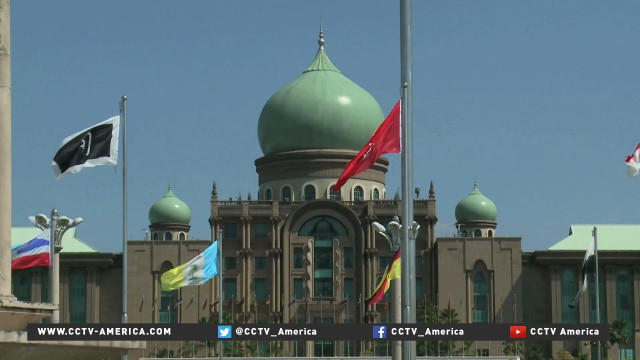One government that is under pressure to expand the role of sharia law is Malaysia. The pressure is not only coming from the Islamist opposition, but from within the ruling party itself. It’s inspired the government to come up with something called the “Sharia Index.” Many non-Muslims are concerned, as CCTV’s Rian Maelzer reported from Kuala Lumpur.

Malaysia’s prime minister Najib Razak said the new Shariah index will measure how well the government is complying with Islamic principles in areas such as law, the economy, politics and social issues and will show the government where it can improve.
Malaysia has a dual-track legal system, with civil law governing most matters, including criminal offences, but Shariah governing family law and applying only to Muslims. Many Muslim groups want to see that change.
“We welcome the Shariah Index because our expectation is to expand Shariah to all fields we have in Malaysia, not only in the financing system, in the family matters, but to cover all aspects of daily life,” Jufitri Joha from Muslim Youth Movement of Malaysia said.
There are some moves in that direction, with the government considering creating a Shariah apex court with powers equal to the top civil court.
Meanwhile, the opposition-led state of Kelantan is aiming to implement the strict Islamic criminal code known as hudud, which prescribes punishments such as amputations and stoning. Malaysia’s ruling party said it might support the move.
This apparent trend of Islamization is deeply worrying for many, especially the roughly one-third of Malaysians who are non-Muslim.
“I think the danger many of us are feeling is whether we are welcome. I’m third generation Malaysian, and some non-Muslims are seven or eight generations. And the whole question here is this Malaysia for all, or Malaysia for some first,” a political scientist Wong Chin Huat said.
Legal experts said that to significantly expand the reach of Islamic law in Malaysia the country’s secular constitution would have to be amended. That’s not entirely out of the question, not if the ruling party and the opposition Islamist party opt to work together.
Analyst Nasser Weddady discusses the sharia law
CCTV America interviewed Nasser Weddady, an analyst specializing in the Middle East and North Africa. He’s also the co-editor of the book “Arab Spring Dreams: The Next Generation Speaks Out for Freedom and Justice from North Africa to Iran”.

 CGTN America
CGTN America
